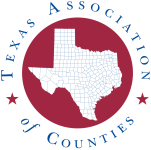News Article | October 27, 2022
A Look at Some 2024-25 State Agency Funding Requests Important to Counties
Staff from the Governor's Office, the Legislative Budget Board and House and Senate budget-writing committees recently completed hearings on the 2024-25 Legislative Appropriations Requests (LARs) of state agencies, the judiciary and higher education institutions.
The state budget provides counties with limited funding for indigent defense, indigent health care, jail diversion, adult and juvenile community correction and other programs. Many of these programs are underfunded or unfunded mandates – requirements placed on counties by the state but mainly funded by county property taxes.
For example, the state does not compensate counties for the expense of housing state prisoners awaiting transfer to the Texas Department of Criminal Justice. More cost-shifting occurs when the state cannot provide beds at state hospitals for inmates awaiting court-ordered inpatient care in county jails or admit juveniles committed to Texas Juvenile Justice Department (TJJD) secure facilities. In addition to the funding for inpatient psychiatric beds and secure facilities for juvenile offenders, the state budget provides partial funding for community-based corrections, behavioral health and other programs that impact county spending.
Below are some 2024-25 agency funding requests important to Texas counties. The Governor's appropriations request for 2024-25 includes millions in federal and state grant funds that counties are eligible to receive.
- $150 million for early deployment of resources and funds in disasters. This amount includes FEMA match assistance for local governments experiencing disasters.
- $24 million in grant funding to establish specialty courts.
- $15 million for body-worn camera grants.
- $10.2 million to continue funding for Operation Lone Star grants.
- $10 million for grants to purchase bullet-resistant vests.
- $6.9 million for county essential service grants, which provide counties with funds to offset the extraordinary costs of capital murder cases.
- $4 million in grant funding for new juvenile case managers for justice, municipal and constitutional county courts in jurisdictions without them.
The Texas Health and Human Services Commission (HHSC) is requesting funding to reduce the waitlist for state hospital beds by reducing turnover in direct care staff and adding new inpatient care beds. As of August, the state hospital forensic waitlist had more than 2,400 individuals awaiting admission to a state hospital. The agency requests $152.1 million in money above current spending levels for behavioral health programs to:
- Fund the 168-bed John S. Dunn Behavioral Sciences Center in Houston for the 2024-25 biennium.
- Operate the planned Dallas hospital, including 100 beds in the children's unit.
- Maintain contracted beds to assist in reducing the state hospital bed waitlist.
- Plan and acquire land for a new inpatient psychiatric hospital in the Panhandle.
- Develop a plan for the Terrell and Wichita Falls state hospital campuses.
HHSC's budget request also continues current funding levels for its community-based mental health programs, including a $30 million appropriation for inpatient psychiatric beds in urban and rural communities added by the 87th Legislature.
In terms of funding needs for the 2022-23 budget, HHSC projects a $3.7 billion budget shortfall in the Medicaid program due to the extension of the COVID-19 public health emergency. The agency estimates they will be unable to make payments to providers beginning in May 2023. Funding for this shortfall could come from either the $27 billion surplus in General Revenue funds or the $13.6 billion balance in the rainy day fund that Comptroller Glenn Hegar estimates for the end of FY 2023.
TJJD asks for $103.9 million in new funding for county probation departments in its 2024-25 budget request, including:
- $28 million for a state-funded salary stipend for county juvenile probation officers and juvenile supervision officers.
- $22 million for commitment diversions by increasing funding for community placements.
- $40 million to build a new county-operated post-adjudication facility.
According to TJJD, this funding is necessary to relieve the juvenile justice system's current detention crisis. TJJD will also seek additional funding in the current 2022-23 budget to reimburse counties for housing and treating youth awaiting transfer to TJJD secure facilities. Citing staffing shortages, TJJD issued emergency protocols on June 29 to temporarily close admissions to its secure facilities.
Finally, the Texas Commission on Indigent Defense (TIDC) is requesting $50 million in new grant funds to establish public defender offices in rural communities. According to the commission, the demand for rural defender offices is more than double the available TIDC funds. Also, rural defender offices lead to lower recidivism rates and improved mental health and public safety. The state provides public defense on a county-by-county basis.
TAC Legislative Services provides regular updates regarding legislative funding requests of importance to county officials. Contact Zelma Smith or the Legislative Consultant assigned to your organization for more information on the state budget process.

